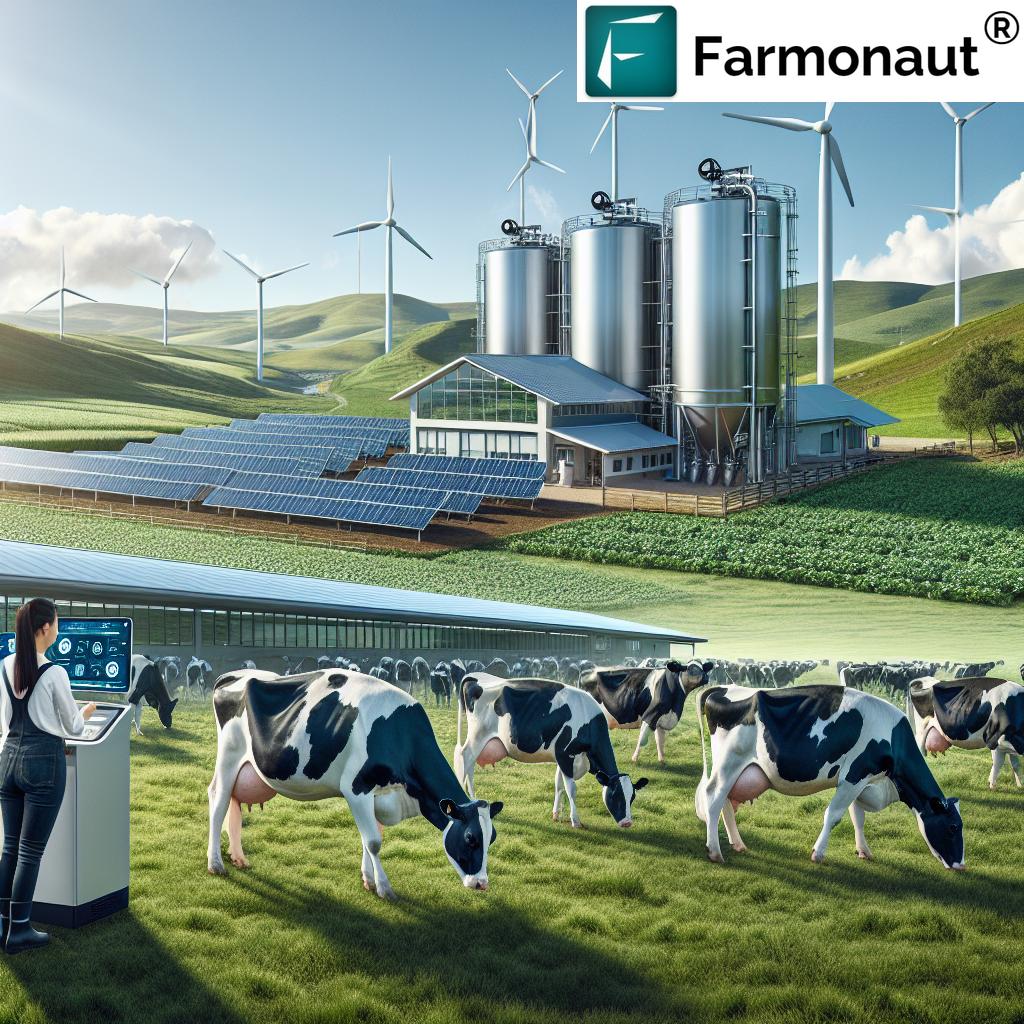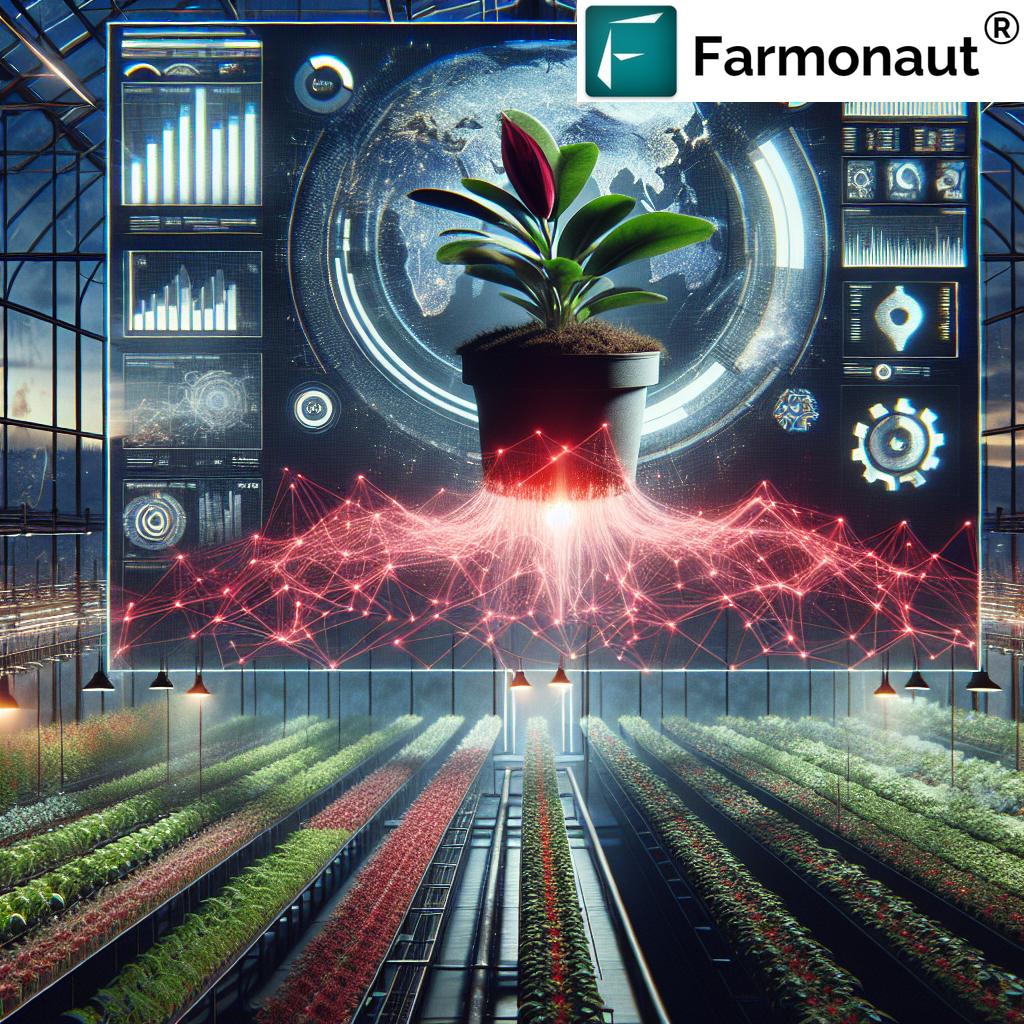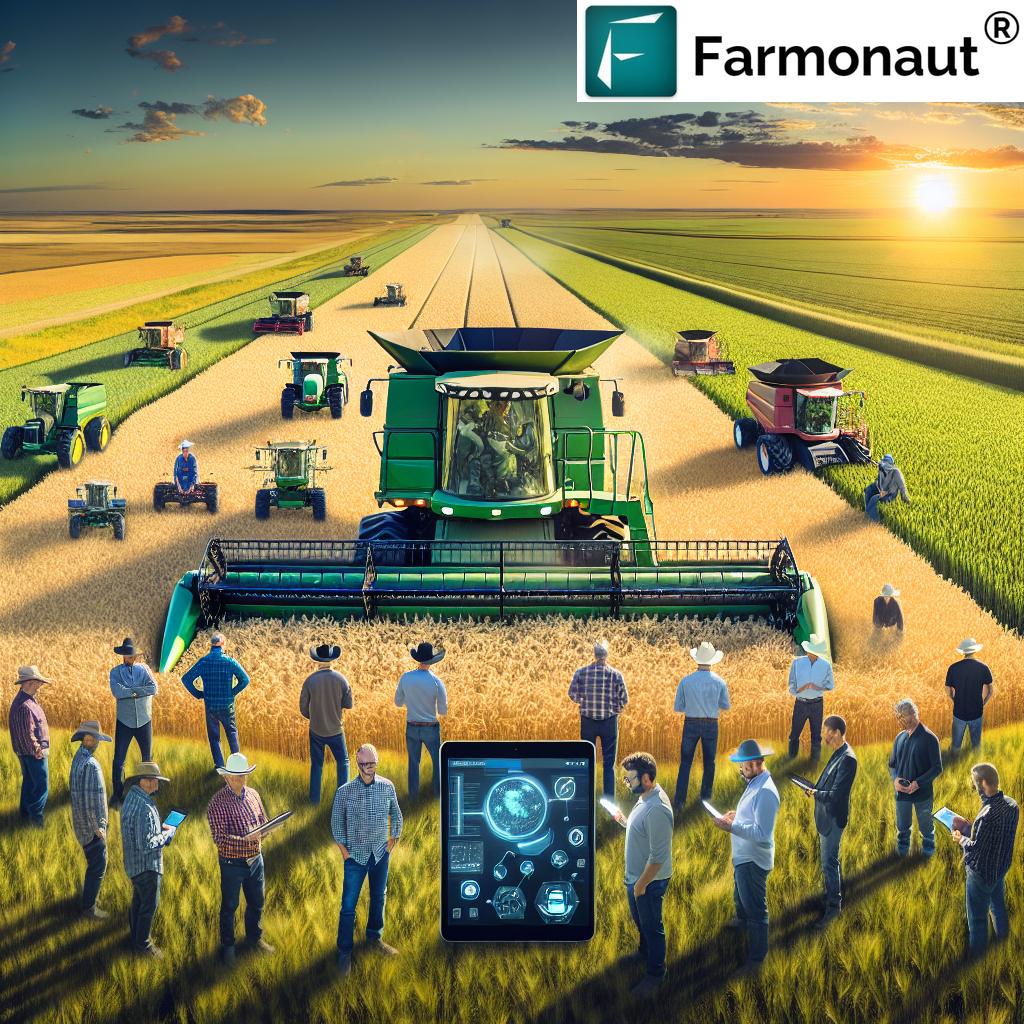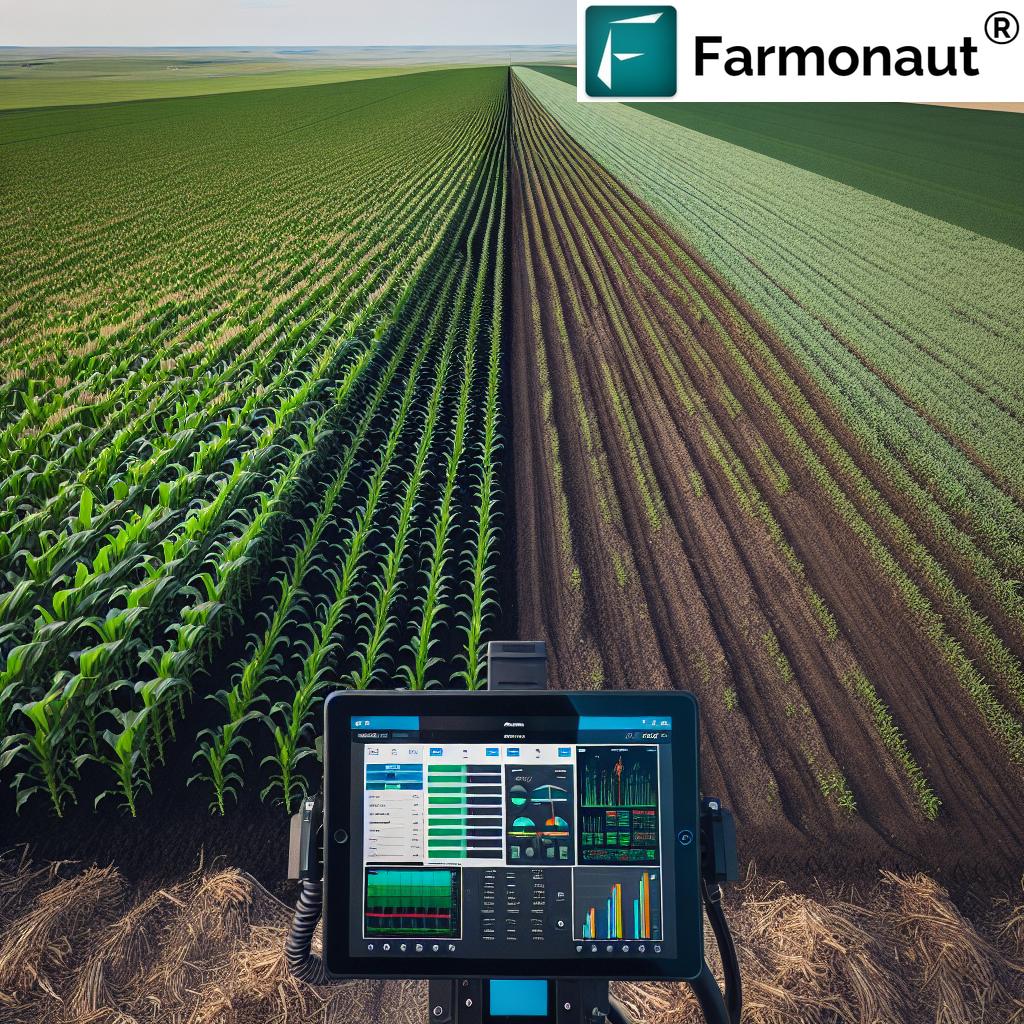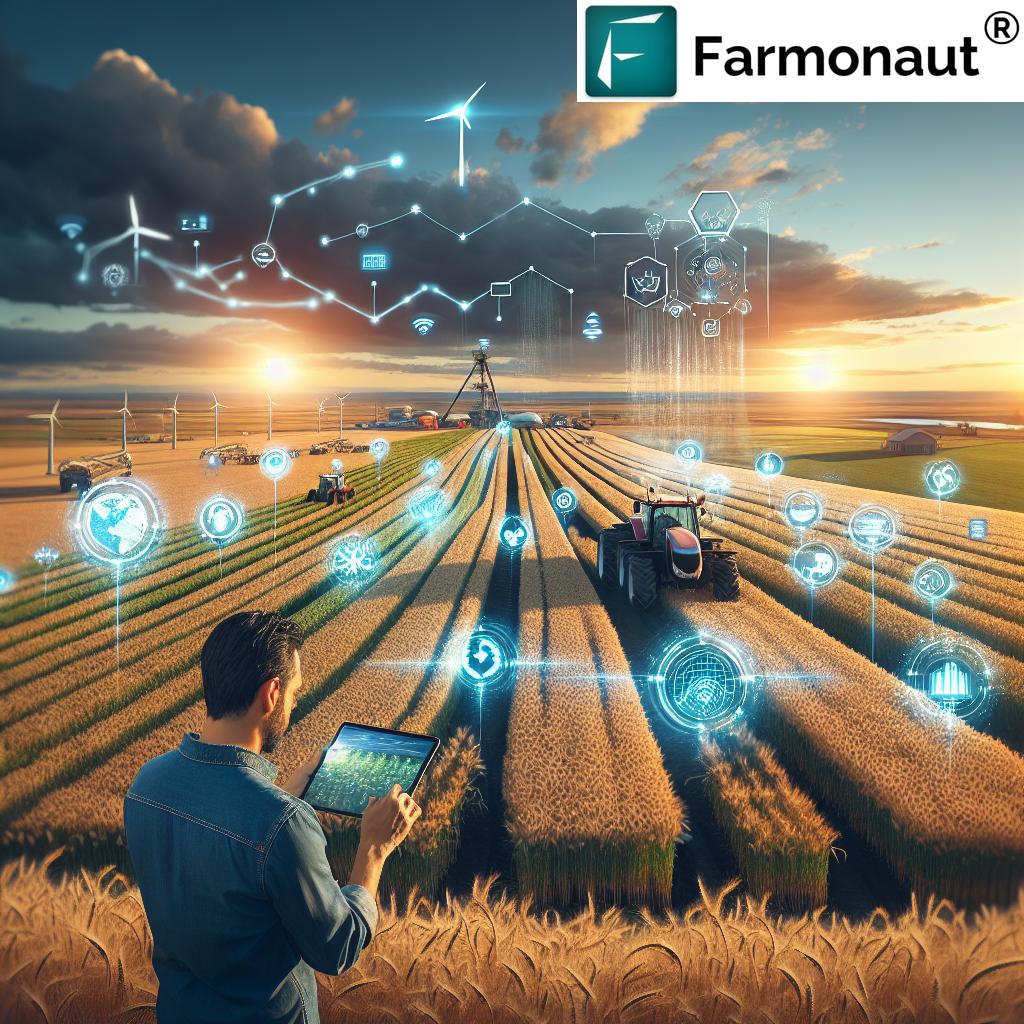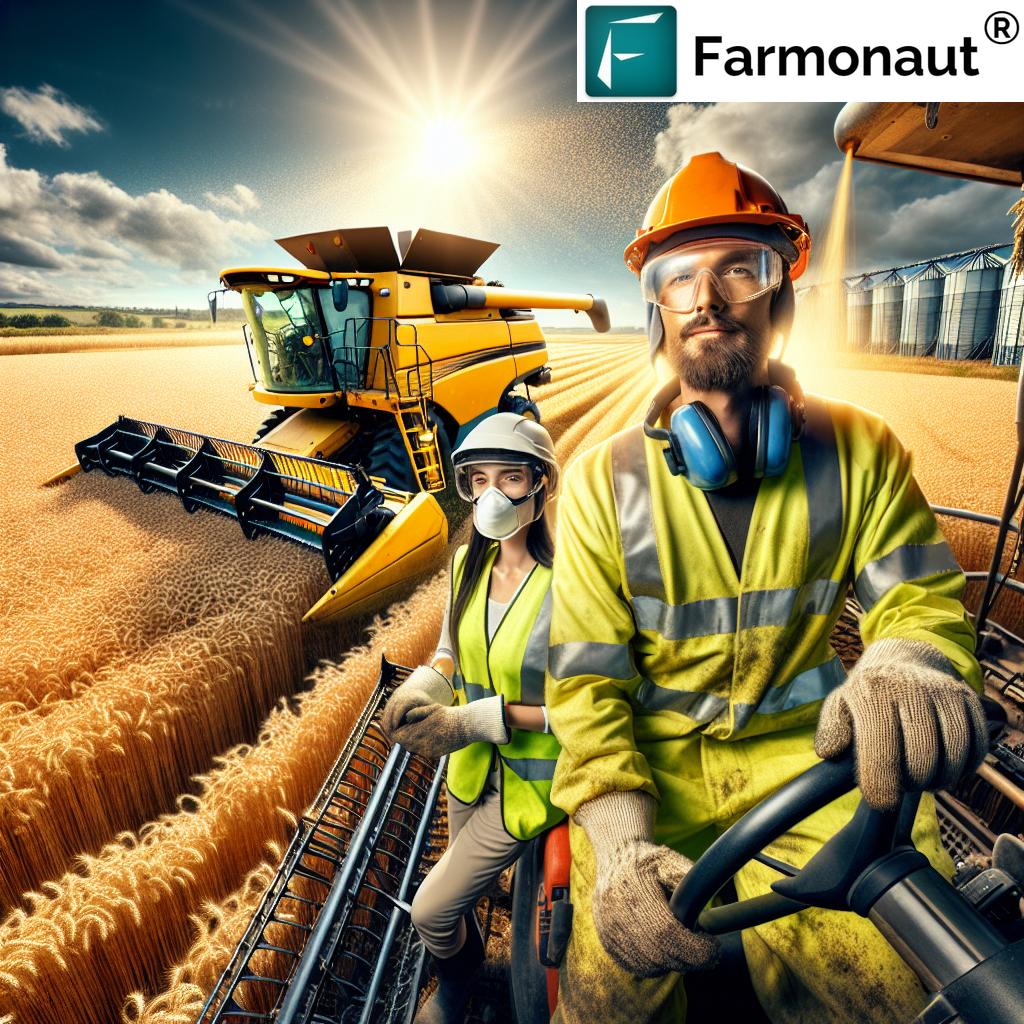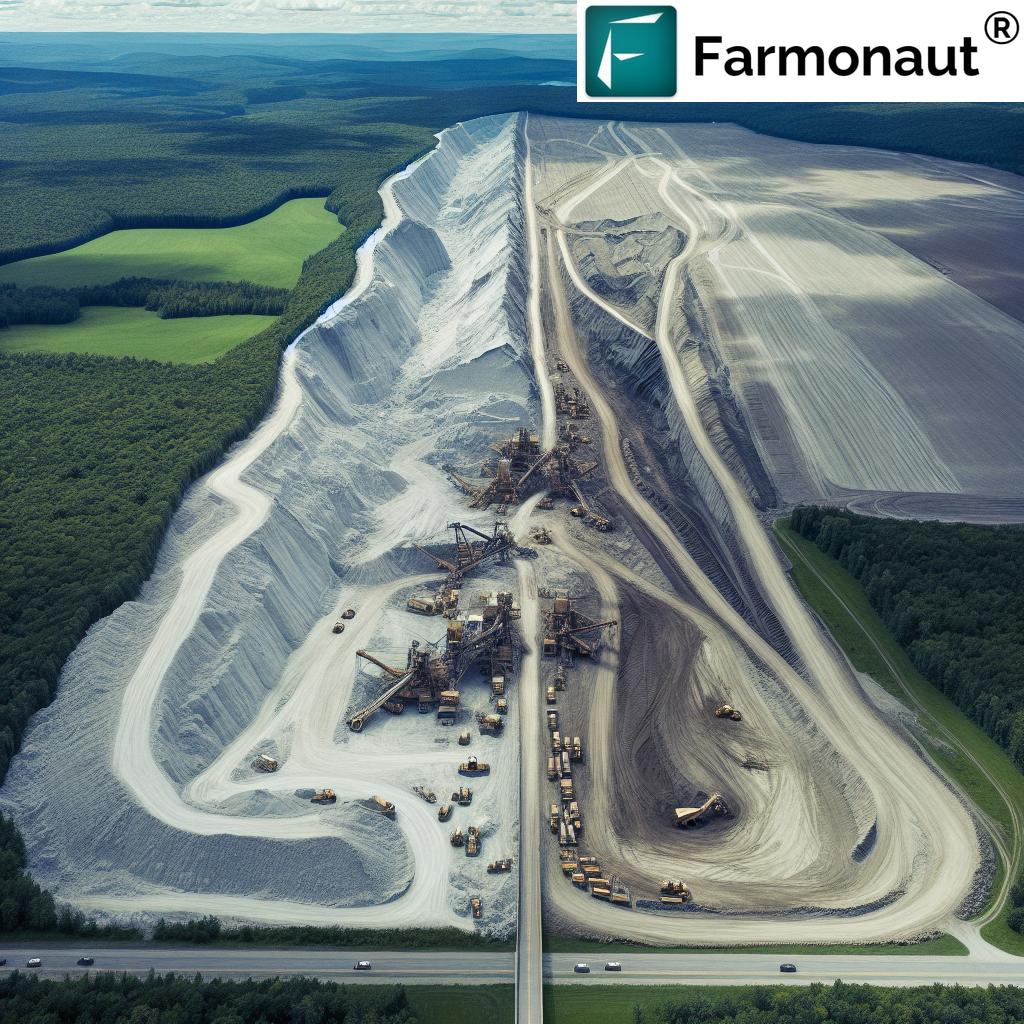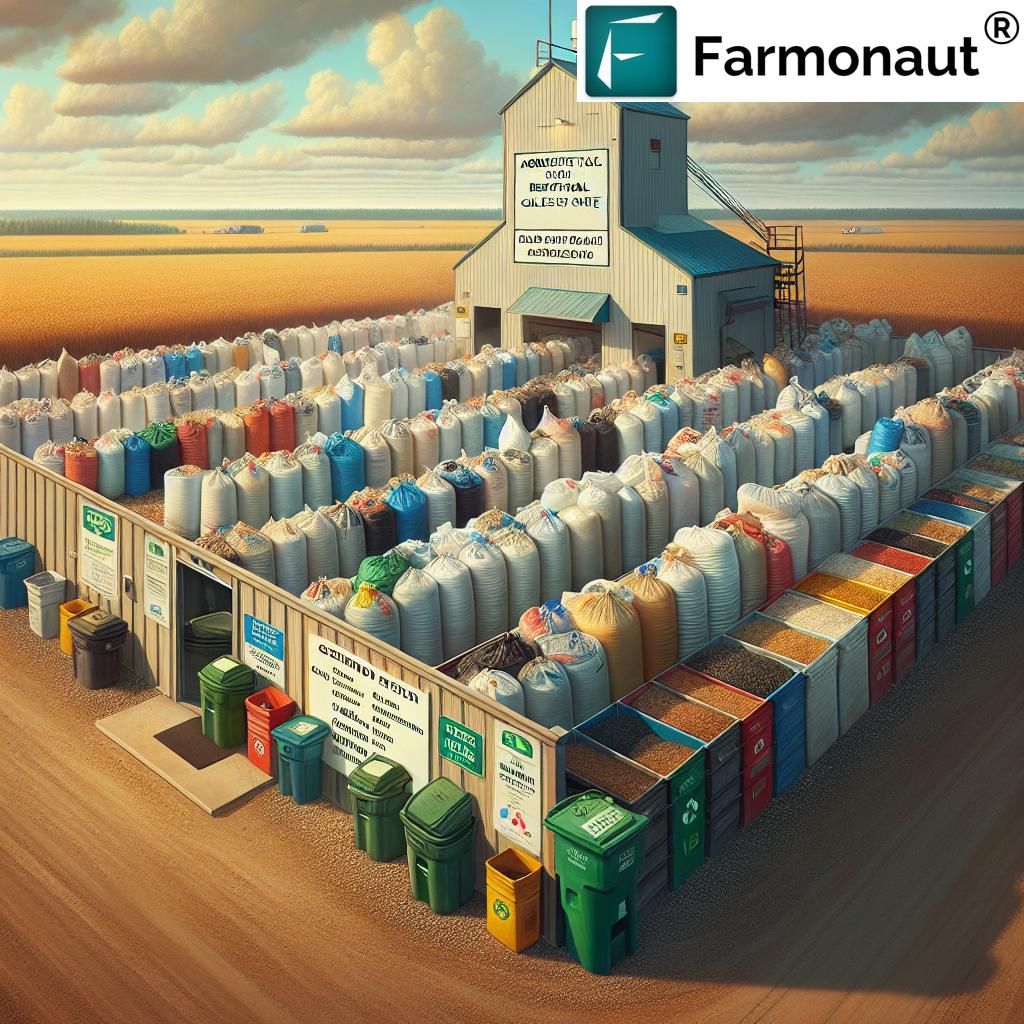Revolutionizing Canada’s Agri-Food Sector: How AI and Precision Agriculture Are Driving Sustainable Food Production
“AI-driven precision agriculture can analyze data at sub-field levels, potentially increasing crop yields by up to 20%.”
In the heart of Canada’s vast agricultural landscape, a revolution is taking place. We are witnessing the dawn of a new era in farming, where artificial intelligence (AI) and precision agriculture are transforming the way we produce food. This groundbreaking initiative is not just about increasing yields; it’s about creating a more sustainable, efficient, and transparent agri-food value chain from farm to table.
As we delve into this exciting transformation, let’s explore how these innovative technologies are reshaping Canada’s agri-food sector, driving sustainable food production, and paving the way for a healthier planet.
The AI Revolution in Canadian Agriculture
The integration of AI in agriculture is not just a trend; it’s a necessity. With the global population expected to reach 9.7 billion by 2050, the demand for food is skyrocketing. Canada, as one of the world’s leading agricultural producers, is at the forefront of this technological revolution.
- Enhanced crop monitoring and prediction
- Optimized resource management
- Improved decision-making for farmers
- Increased sustainability and reduced environmental impact
These advancements are made possible through the collaborative efforts of innovative companies and government initiatives. One such initiative, announced on November 20, 2024, by Protein Industries Canada, aims to revolutionize the agri-food value chain through the integration of AI technologies.
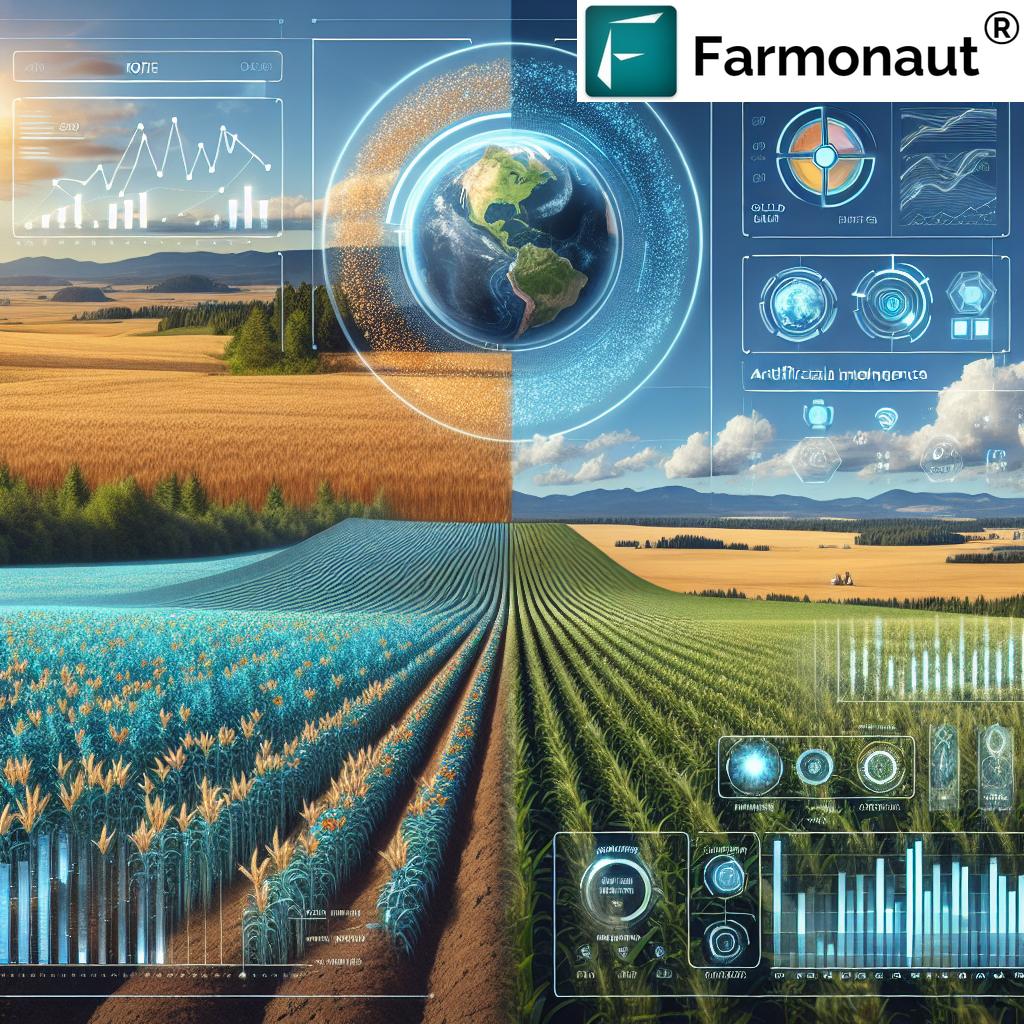
Precision Agriculture: The Cornerstone of Sustainable Farming
Precision agriculture is at the heart of this technological revolution. By leveraging advanced data collection and analysis techniques, farmers can make more informed decisions about every aspect of their operations.
- Sub-field level data collection and analysis
- Real-time crop health monitoring
- Targeted application of inputs (water, fertilizers, pesticides)
- Yield prediction and optimization
The integration of AI with precision agriculture tools is taking these capabilities to new heights. For instance, Farmonaut, a pioneering agricultural technology company, offers advanced satellite-based farm management solutions that are making precision agriculture more accessible and affordable for farmers across Canada.

The Role of AI in Enhancing Food Transparency and Traceability
In today’s market, consumers are increasingly demanding transparency in their food supply chain. They want to know where their food comes from, how it was produced, and its environmental impact. AI and blockchain technologies are making this level of transparency possible.
- End-to-end supply chain tracking
- Verification of sustainability claims
- Real-time data on environmental impact
- Enhanced food safety and quality control
These advancements not only satisfy consumer demands but also open up new market opportunities for Canadian farmers and food processors. By providing verified data that adheres to regulatory standards, they can access premium markets and sustainability incentives.
AI-Driven Crop Optimization: Boosting Yields and Reducing Waste
One of the most significant impacts of AI in agriculture is its ability to optimize crop production. By analyzing vast amounts of data, including soil conditions, weather patterns, and historical yield information, AI algorithms can provide farmers with actionable insights to maximize their yields.
- Predictive modeling for optimal planting times
- Early detection of crop diseases and pests
- Precision irrigation and fertilization recommendations
- Harvest timing optimization
These AI-driven optimizations not only increase yields but also significantly reduce waste in the food production process. This is crucial for building a more sustainable and efficient agri-food sector in Canada.
Explore Farmonaut’s API for advanced agricultural data
Sustainable Ingredient Processing: From Farm to Table
The impact of AI and precision agriculture extends beyond the farm. In food processing and manufacturing, these technologies are driving efficiency and sustainability to new levels.
- Optimized mill process settings
- Reduced energy consumption in food processing
- Minimized food waste during manufacturing
- Enhanced quality control through AI-powered inspection systems
By providing food manufacturers with detailed data about the crops they’re processing, AI enables them to fine-tune their operations for maximum efficiency and quality. This not only reduces costs but also minimizes the environmental impact of food production.
“Canada’s agri-food sector, worth over $100 billion annually, is being revolutionized by AI and precision agriculture technologies.”
Agri-Food Data Integration: The Power of Information
At the core of this agricultural revolution is data. The ability to collect, analyze, and act on vast amounts of agricultural data is transforming every aspect of the food production process.
- Integration of data from multiple sources (satellites, IoT devices, weather stations)
- Advanced analytics for trend identification and prediction
- Machine learning algorithms for continuous improvement
- Seamless data sharing across the value chain
Companies like Farmonaut are at the forefront of this data revolution, providing farmers and agribusinesses with powerful tools to harness the power of their data. Through their advanced software and services, they’re making data-driven agriculture accessible to farms of all sizes.
Check out Farmonaut’s API Developer Docs
The Environmental Impact: Building a Cleaner, Greener Future
One of the most crucial aspects of this technological revolution is its potential to significantly reduce agriculture’s environmental footprint. By optimizing resource use and minimizing waste, AI and precision agriculture are paving the way for more sustainable food production.
- Reduced water usage through precision irrigation
- Minimized chemical inputs (fertilizers and pesticides)
- Lower greenhouse gas emissions from farm operations
- Improved soil health through data-driven management practices
These environmental benefits are not just good for the planet; they also align with growing consumer demand for sustainably produced food. This creates a win-win situation for farmers, consumers, and the environment.
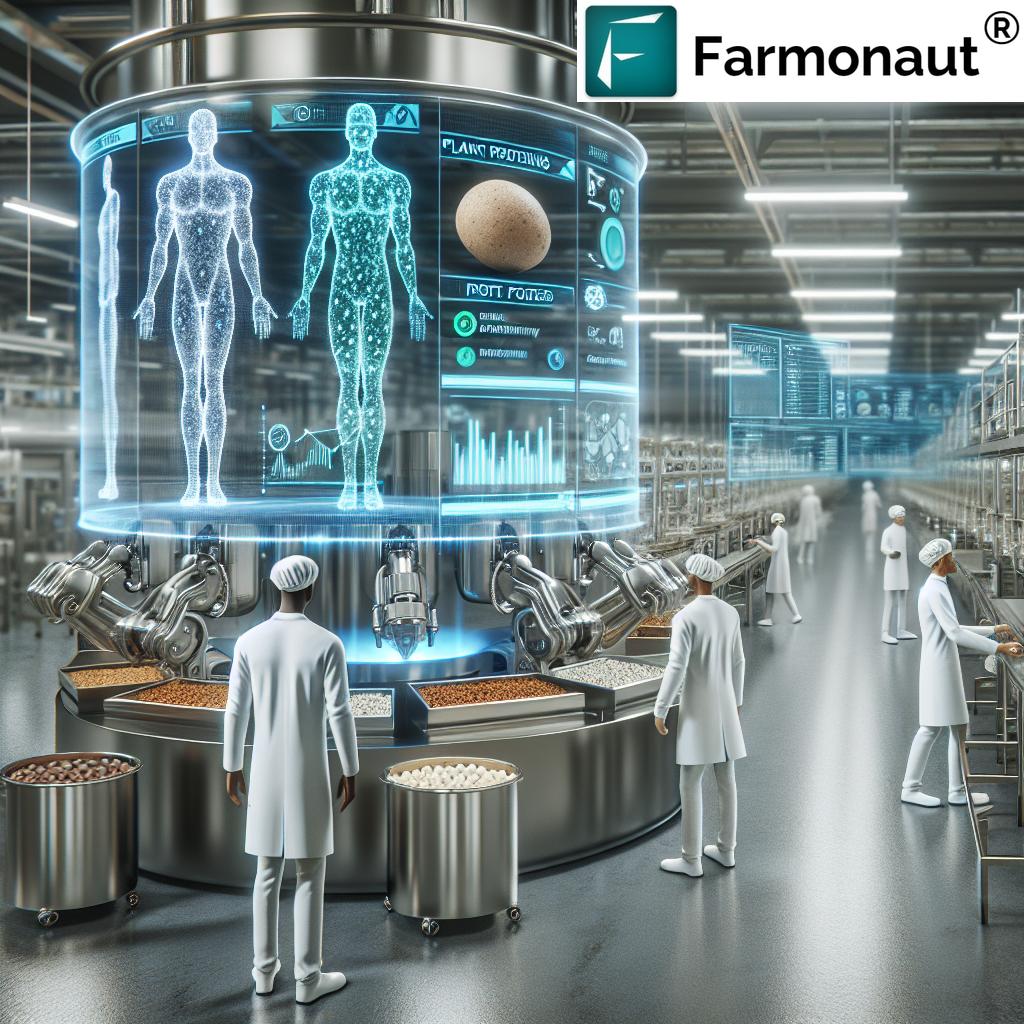
The Future of Food Manufacturing: AI-Driven Efficiency
As we look to the future, the role of AI in food manufacturing is set to grow exponentially. From optimizing production lines to predicting consumer trends, AI is revolutionizing every aspect of food processing and manufacturing.
- Predictive maintenance for manufacturing equipment
- AI-powered quality control and food safety measures
- Automated supply chain management and logistics
- Personalized product development based on consumer data
These advancements are not only improving efficiency and reducing costs but also enabling food manufacturers to respond more quickly to changing consumer demands and market trends.
Download Farmonaut’s mobile apps for on-the-go farm management:


Empowering Farmers: AI as a Tool for Success
While the benefits of AI and precision agriculture are clear, it’s important to recognize that these technologies are tools to empower farmers, not replace them. The knowledge and experience of Canadian farmers remain crucial to the success of the agri-food sector.
- AI-powered decision support systems
- User-friendly interfaces for complex data analysis
- Training and education programs for farmers
- Collaborative platforms for knowledge sharing
Companies like Farmonaut are leading the way in making these advanced technologies accessible and user-friendly for farmers of all technological backgrounds. Their intuitive platforms and support services ensure that farmers can easily integrate these powerful tools into their operations.
The Economic Impact: Boosting Canada’s Agri-Food Sector
The integration of AI and precision agriculture technologies is not just about improving farming practices; it’s also about strengthening Canada’s position in the global agri-food market.
- Increased competitiveness in international markets
- Creation of high-skilled jobs in the agri-tech sector
- Attraction of investment in agricultural innovation
- Development of new export opportunities for Canadian agri-food products
By embracing these technologies, Canada is positioning itself as a leader in sustainable and efficient food production, opening up new economic opportunities for the entire agri-food value chain.
Overcoming Challenges: The Road Ahead
While the potential of AI and precision agriculture is immense, there are challenges that need to be addressed for widespread adoption:
- Ensuring data privacy and security
- Bridging the digital divide in rural areas
- Addressing the initial costs of technology adoption
- Developing regulations that keep pace with technological advancements
Addressing these challenges will require collaboration between government, industry, and academia. Initiatives like the one announced by Protein Industries Canada are crucial in overcoming these hurdles and paving the way for a more technologically advanced and sustainable agri-food sector.
AI-Driven Precision Agriculture Benefits Comparison
| Metrics | Traditional Farming | AI-Driven Precision Agriculture |
|---|---|---|
| Crop Yield | Baseline | 15-20% increase |
| Resource Efficiency | Baseline | 30-40% improvement in water and fertilizer use |
| Waste Reduction | Baseline | 25-30% decrease |
| Data Accuracy | 60-70% | 90-95% |
| Market Access | Limited to traditional markets | Access to premium and niche markets |
| Environmental Impact | Higher resource use and emissions | Significantly reduced environmental footprint |
Conclusion: A Sustainable Future for Canadian Agriculture
As we look to the future, it’s clear that AI and precision agriculture will play a crucial role in shaping Canada’s agri-food sector. These technologies offer the promise of increased productivity, improved sustainability, and enhanced food quality and safety.
By embracing these innovations, Canadian farmers and food manufacturers can position themselves at the forefront of a global agricultural revolution. The journey towards a more sustainable and efficient food production system has begun, and the future looks bright for Canadian agriculture.
As we continue to innovate and adapt, one thing is certain: the integration of AI and precision agriculture is not just transforming how we produce food – it’s reshaping our entire relationship with the land, our resources, and our food system. It’s a transformation that promises a healthier, more sustainable future for all Canadians and for our planet.
Farmonaut Subscriptions
Frequently Asked Questions
Q: What is precision agriculture?
A: Precision agriculture is a farming management concept that uses information technology and a wide array of items such as GPS guidance, control systems, sensors, robotics, drones, autonomous vehicles, variable rate technology, GPS-based soil sampling, automated hardware, telematics, and software to optimize crop yields and reduce waste.
Q: How does AI contribute to sustainable food production?
A: AI contributes to sustainable food production by optimizing resource use, reducing waste, improving crop yields, enabling precise application of inputs, and providing data-driven insights for better decision-making in farming and food processing.
Q: What are the benefits of AI-driven precision agriculture for farmers?
A: Benefits include increased crop yields, improved resource efficiency, reduced input costs, better crop health monitoring, more accurate yield predictions, and access to new markets through improved traceability and sustainability practices.
Q: How does AI improve food transparency and traceability?
A: AI, combined with technologies like blockchain, enables end-to-end tracking of food products from farm to table. This provides consumers with detailed information about the origin, production methods, and journey of their food, enhancing trust and transparency in the food supply chain.
Q: What role does Farmonaut play in the AI revolution in agriculture?
A: Farmonaut provides advanced satellite-based farm management solutions that make precision agriculture more accessible and affordable. Their platform offers real-time crop health monitoring, AI-based advisory systems, and resource management tools, contributing to more efficient and sustainable farming practices.


